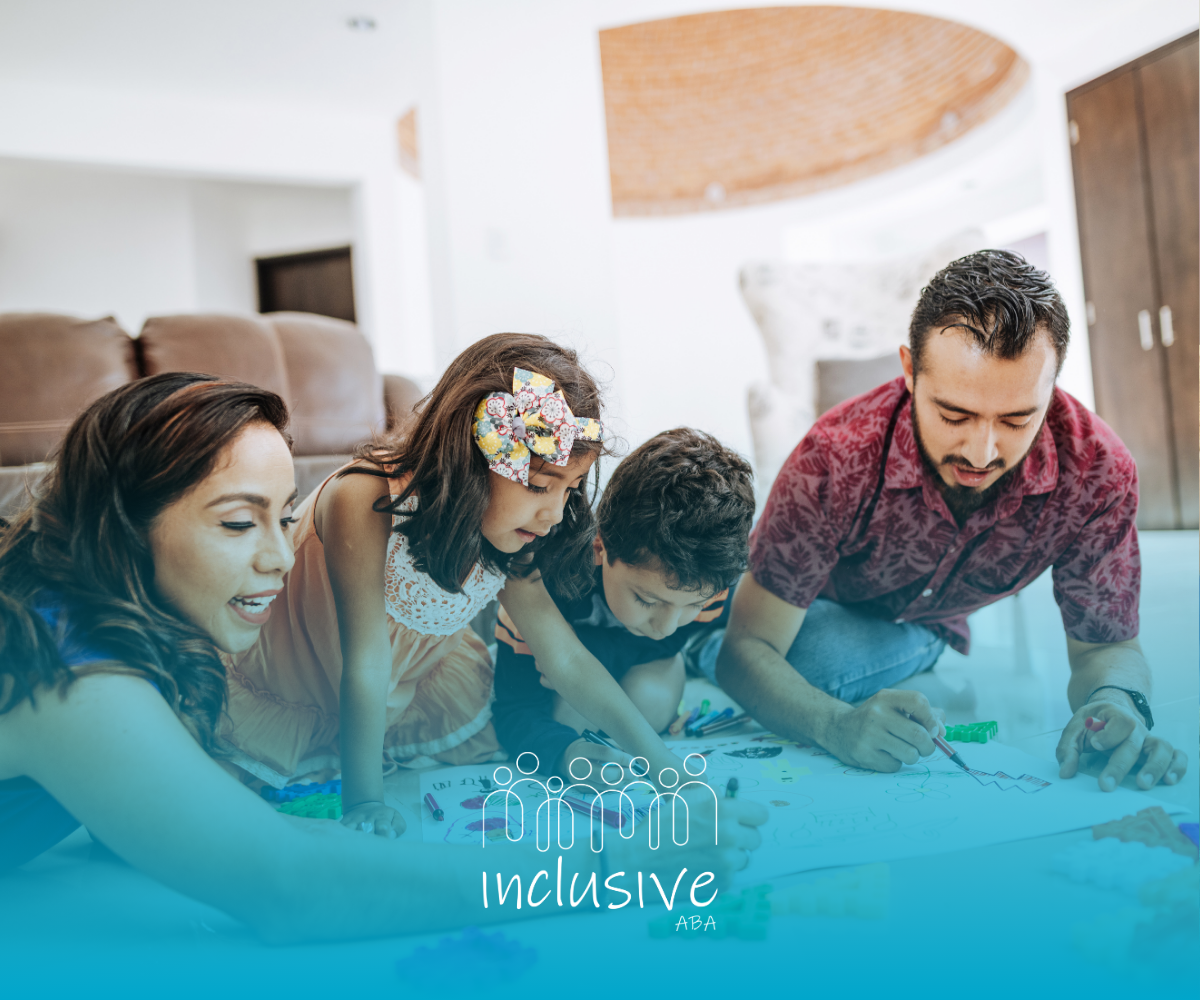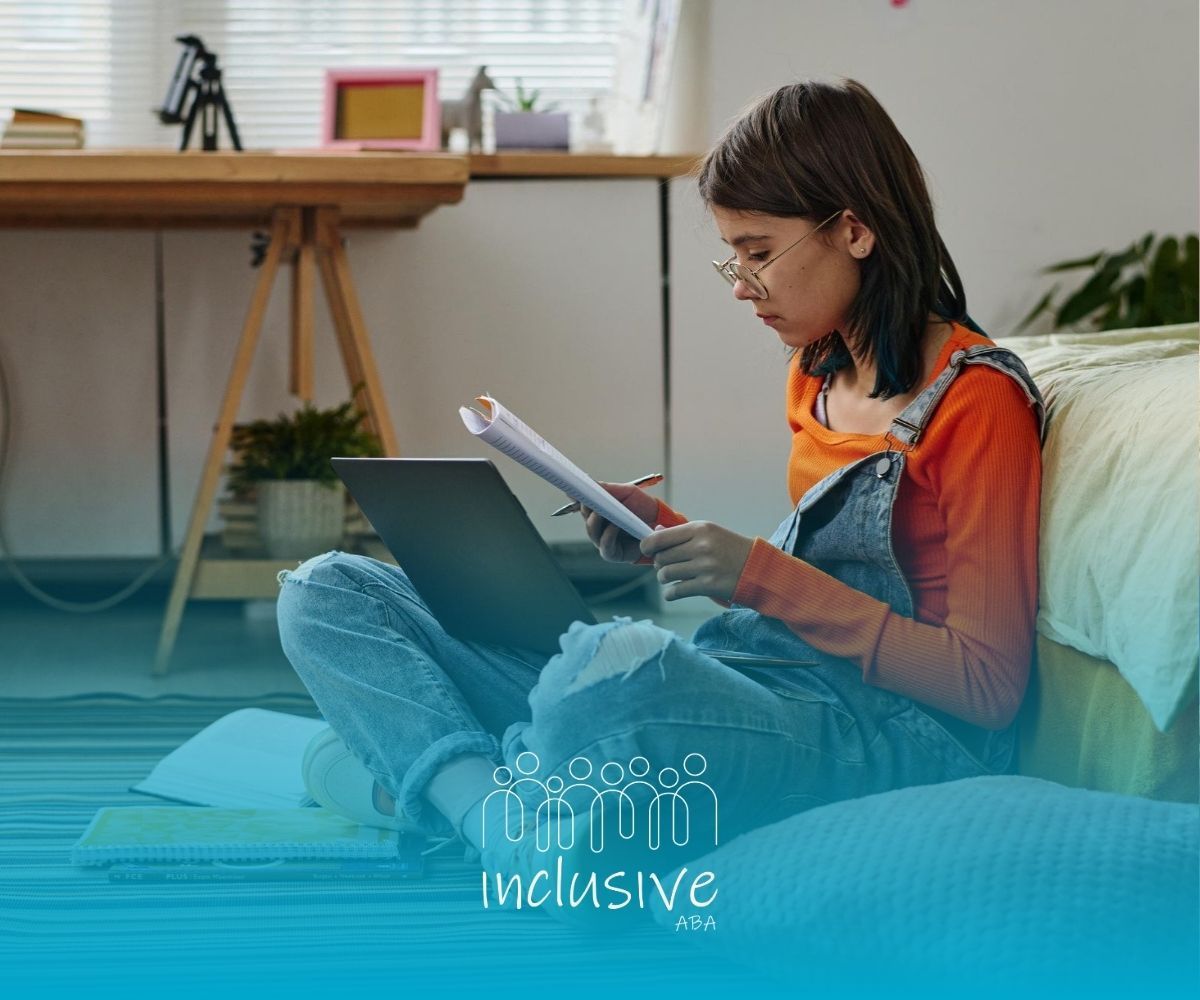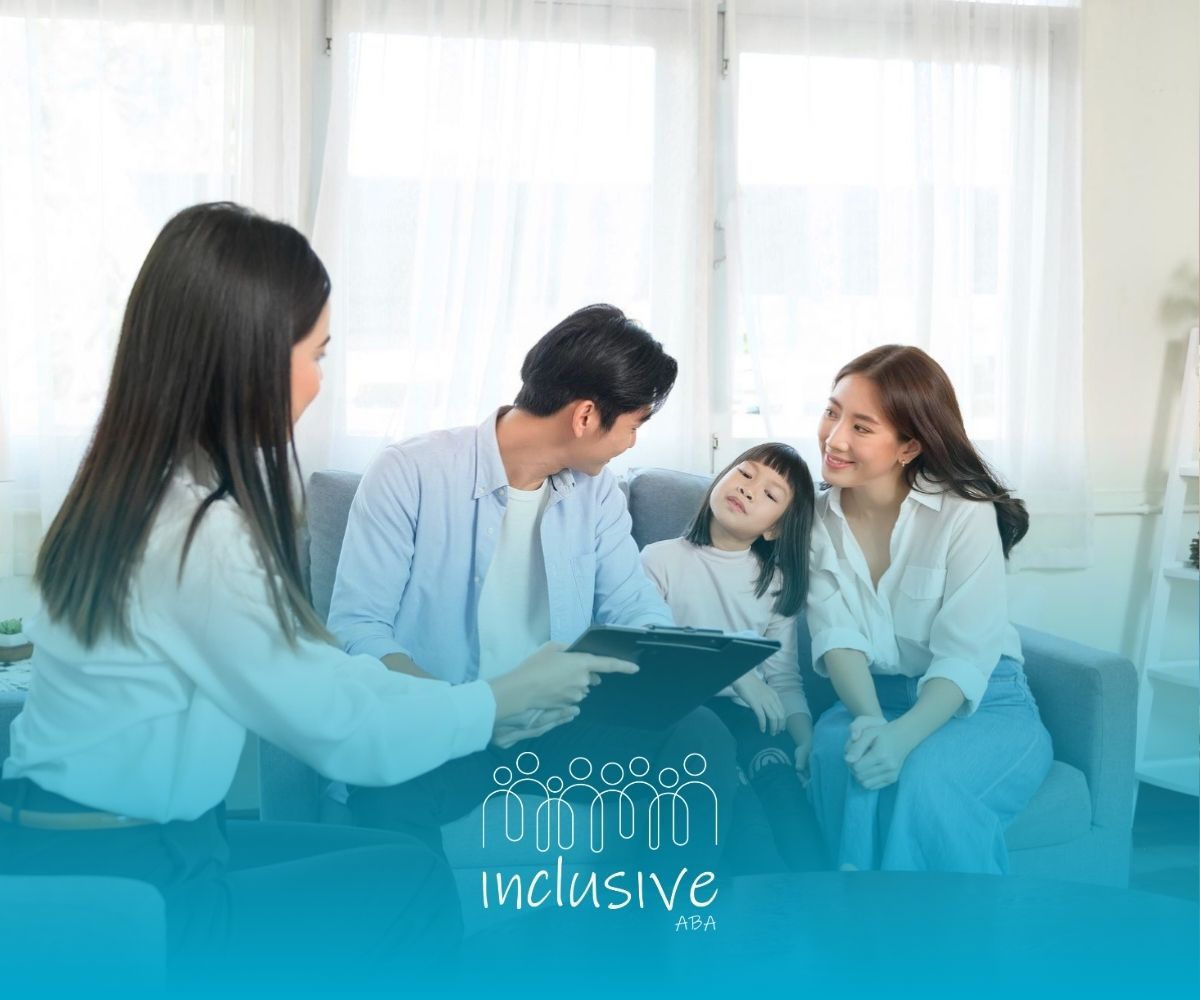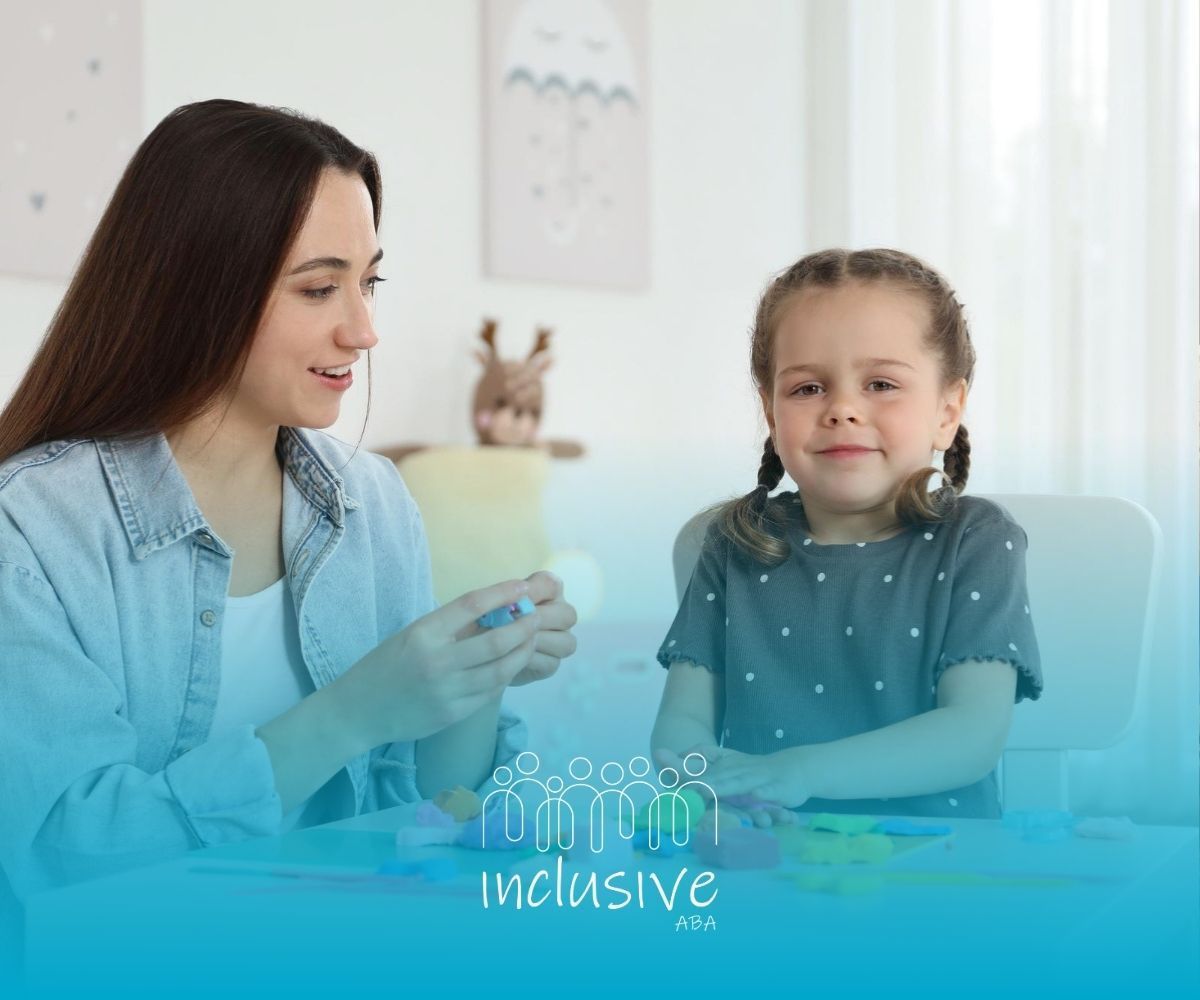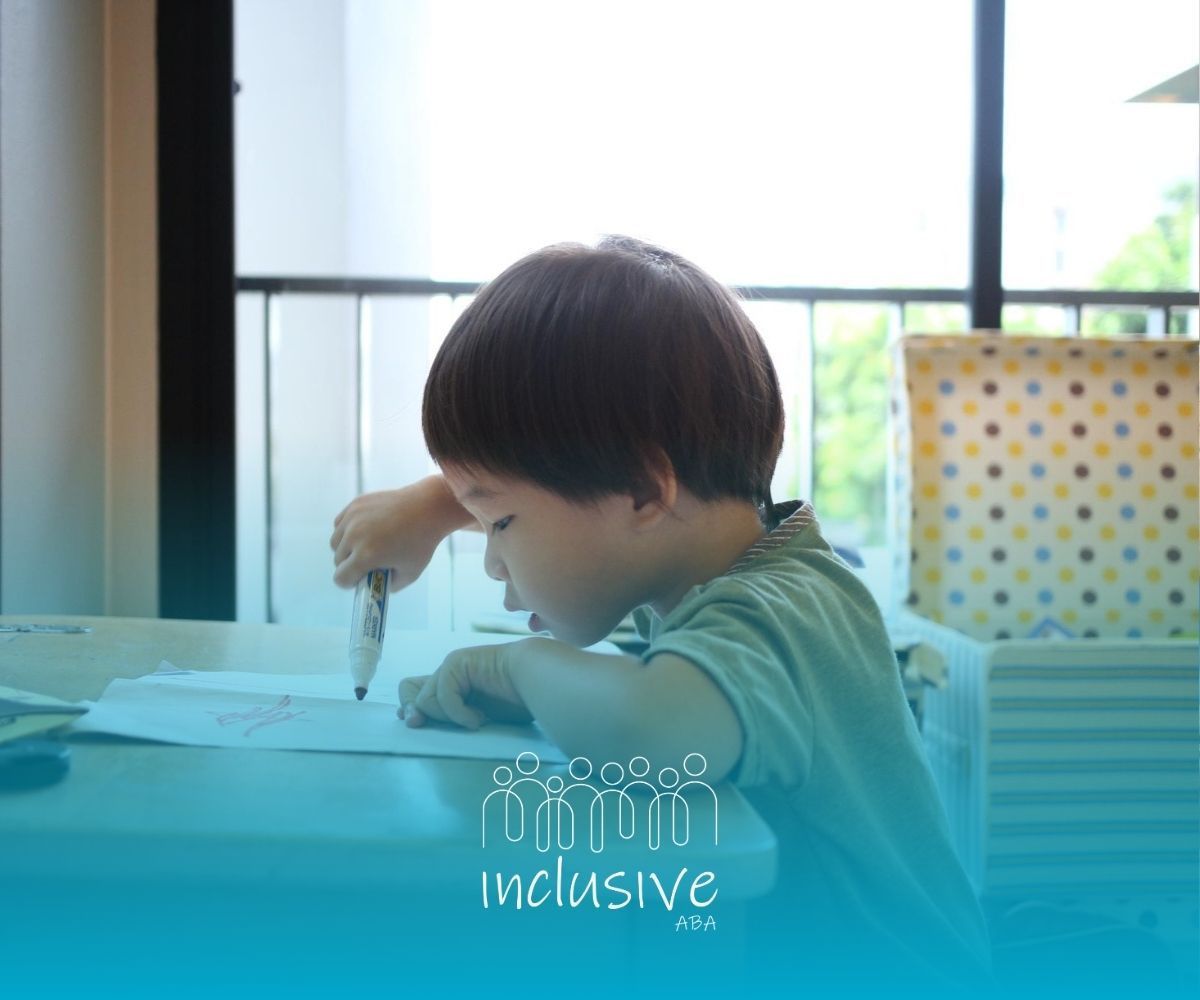
Why Center-Based ABA Therapy is a Game-Changer for Kids
When choosing ABA therapy for your child, one important decision is whether to opt for home-based or center-based services. Center-based ABA therapy offers a highly structured environment where children can learn, interact with peers, and receive guidance from a team of trained professionals.
In this blog, we’ll explore the advantages of center-based ABA therapy, including how it supports skill-building, encourages social development, and provides consistent, high-quality treatment.
Understanding ABA Therapy Centers
What is ABA Therapy?
Applied Behavior Analysis (ABA) therapy is a scientifically validated approach aimed at improving specific behaviors in individuals with Autism Spectrum Disorder (ASD) and other developmental conditions. It employs positive reinforcement techniques to teach new skills and reduce challenging behaviors.
ABA therapy focuses on measurable outcomes, enabling you to see the tangible progress your child makes. Key components of ABA therapy include:
- Discrete Trial Training (DTT): A structured method to teach specific skills through repetitive practice and positive reinforcement.
- Natural Environment Training (NET): Skills are taught in natural settings to promote generalization.
- Behavior Intervention Plans (BIP): Personalized strategies to address and minimize challenging behaviors.
Overview of ABA Therapy Centers
ABA therapy centers are specialized facilities focused on delivering high-quality ABA interventions. These centers offer a variety of benefits that can make a significant difference in your child's progress and development. ABA centers provide a structured environment designed to optimize learning and skill acquisition.
Key features of ABA therapy centers include:
- Structured Environment: Center-based settings are designed to create a consistent and predictable environment, which can help your child feel more comfortable and focused.
- Specialized Equipment and Resources: Centers are equipped with a range of tools and resources specifically designed to support ABA therapy, making it easier to implement various techniques effectively.
- Team of Trained Professionals: Centers employ certified ABA therapists, behavior analysts, and other trained professionals who work collaboratively to deliver personalized care for your child.
Understanding these core aspects of ABA therapy and the environment provided by ABA centers prepares you to explore the specific advantages they offer for your child's development.
Advantages of Center-Based ABA Therapy
Center-based Applied Behavior Analysis (ABA) therapy offers a range of benefits for your child. Understanding these can help you make an informed decision about the best therapeutic environment.
Structured Environment
One of the significant advantages of center-based ABA therapy is the structured environment it provides. A controlled and predictable setting can be particularly beneficial for your child as it reduces distractions and fosters focused learning.
- Consistent daily schedules
- Controlled distractions
- Predictable routines
Specialized Equipment and Resources
Centers for ABA therapy are equipped with specialized tools and resources that may not be readily available at home. These resources aim to enhance the quality and effectiveness of the therapy.
- Sensory integration equipment
- Educational materials
- Technology-assisted learning tools
Team of Trained Professionals
At the core of any effective ABA center lies a team of trained professionals committed to your child’s progress. Having access to diverse expertise ensures that your child receives comprehensive care.
- Board-Certified Behavior Analysts (BCBAs)
- Registered Behavior Technicians (RBTs)
- Speech and Occupational Therapists
This team collaboratively works to design, implement, and refine individualized treatment plans to meet the unique needs of your child.
By considering these advantages, you can better understand how a center-based ABA approach can offer structured, resource-rich, and professional care for your child.
Tailored Programs and Individualized Attention
A key benefit of center-based ABA therapy for your child is the creation of tailored programs along with individualized attention.
Personalized Treatment Plans
ABA centers develop personalized treatment plans to cater to your child's specific needs. These plans are designed based on thorough assessments and evaluations.
Therapists consider your child's strengths, challenges, and goals. This helps in creating a program that targets areas needing development while also reinforcing the skills they already possess. Personalized plans ensure that your child receives the attention and interventions they require.
Consistent Monitoring and Progress Tracking
One of the major advantages of ABA centers is the ability to consistently monitor your child's progress. Regular assessments are conducted to gauge how well your child is responding to the treatment.
Behavioral data is collected and analyzed systematically:
- Frequency and duration of targeted behaviors
- Success rates of specific interventions
- Adjustments based on progress or setbacks
These metrics allow for fine-tuning of your child's individualized program, ensuring that the therapy remains effective and aligned with their evolving needs. Frequent monitoring also helps in making necessary adjustments to maintain the treatment's efficacy.
Social Interaction and Peer Learning
One of the remarkable advantages of center-based ABA therapy is the opportunity it provides for social interaction and peer learning. These components are essential for the holistic development of your child.
Group Activities
Group activities are a cornerstone of center-based ABA therapy. These activities are designed to foster collaboration and interaction among children, which can be particularly beneficial for those who may struggle with social skills. During group sessions, your child will engage in various activities that promote teamwork, communication, and problem-solving.
Examples of group activities include:
- Collaborative games that require children to work together to achieve a common goal
- Role-playing exercises that help children practice social scenarios
- Art and craft projects that encourage creative expression and cooperation
These activities not only make learning enjoyable but also teach valuable life skills that your child can apply in everyday situations.
Opportunities for Socialization
In an ABA therapy center, your child will have ample opportunities for socialization. This is crucial for developing the skills needed to interact effectively with peers. Socialization experiences in a center-based setting often include:
- Informal playtime where children can practice making friends and navigating social dynamics
- Structured social skills groups that focus on teaching specific social behaviors
- Peer modeling, where your child can observe and imitate the positive behaviors of others
These opportunities help your child learn how to initiate and maintain conversations, share, take turns, and understand social cues. The consistent exposure to peers in a controlled environment provides a safe space for practicing and mastering these skills.
By participating in group activities and socialization opportunities, your child can make significant strides in their social development. The structured environment of a center-based ABA therapy program ensures that these interactions are guided and supported by trained professionals, making it a key advantage of this therapeutic approach.
Parental Support and Involvement
When it comes to ABA therapy, parental support and involvement are crucial aspects that can significantly contribute to the success of the treatment. At ABA centers, various initiatives are undertaken to ensure parents are well-equipped and supported throughout their child's therapy journey.
Parent Training and Education
One of the key advantages of center-based ABA therapy is the focus on parent training and education. Parents are often given the opportunity to participate in regular training sessions where they learn about the principles and techniques of ABA therapy. These sessions cover crucial aspects such as:
- Understanding behavior triggers
- Reinforcement strategies
- Effective communication techniques
- Handling challenging behaviors
By gaining a deeper understanding of ABA therapy, you can better support your child's progress both at the center and at home. These educational sessions are typically conducted by trained professionals who provide practical advice and hands-on demonstrations to help you implement the techniques effectively.
Guidance for Implementing Strategies at Home
Consistency is essential in ABA therapy, and one of the main goals of an ABA center is to ensure that the skills learned during therapy sessions are generalized to other environments, particularly at home. To achieve this, ABA centers offer guidance for implementing strategies in the home setting. This usually involves:
- Developing a home-based behavior plan
- Setting realistic and measurable goals
- Providing resources and tools for tracking progress
- Offering continuous support and feedback
Implementing these strategies at home helps reinforce the behaviors and skills your child learns during therapy sessions. It also ensures that progress is maintained outside of the therapy setting, contributing to more robust and lasting outcomes.
By offering comprehensive parent training and ongoing guidance, ABA centers empower you to actively participate in your child's therapy. This collaborative approach not only enhances the effectiveness of the treatment but also fosters a supportive and nurturing environment for your child's development.
Transition and Continuity of Care
Smooth Transitions Between Levels of Care
One of the significant advantages of ABA therapy centers is the emphasis on ensuring smooth transitions between different levels of care. Transitions can be a challenging phase for any child, and center-based therapy aims to make these changes as seamless as possible. ABA centers provide a structured and supportive environment where your child can gradually move from one stage of therapy to the next with minimal stress.
The process of transitioning is carefully planned and managed by a team of trained professionals who understand your child's unique needs. They work collaboratively to ensure that each transition phase is tailored to your child's progress and readiness. This strategic approach helps in minimizing any disruptions and aids in maintaining a consistent therapeutic experience.
Long-Term Progress and Maintenance Support
Another key benefit of ABA therapy centers is the focus on long-term progress and maintenance support. Beyond the initial stages of therapy, centers provide ongoing support to ensure that your child continues to make strides in their development. This includes regular monitoring and evaluation to track progress and adjust treatment plans as needed.
Regular assessments are a critical component of long-term support. They help in identifying any areas that may require additional focus and ensure that your child's therapy remains effective. ABA centers also offer resources for parents to implement strategies at home, ensuring continuity of care beyond the therapy sessions.
Consistent monitoring and adjustment of treatment plans play a crucial role in sustaining progress. With dedicated professionals and a proven framework, ABA centers offer a robust support system for your child's developmental journey.
Conclusion
Center-based ABA therapy provides children with a structured learning environment, expert support, and valuable social interactions that help them thrive. If you’re looking for a high-quality, center-based ABA program, Inclusive ABA is here to help! Our experienced team offers personalized therapy plans designed to help children develop essential skills and gain independence.
Want to learn more? Contact Inclusive ABA today to explore how our center-based ABA therapy can support your child’s progress!
FAQs
What are the advantages of center-based ABA therapy?
Center-based ABA therapy provides a structured environment, professional supervision, and social learning opportunities that enhance skill development.
How does center-based ABA therapy differ from home-based therapy?
Unlike home-based therapy, center-based ABA offers a controlled setting with trained professionals, peer interaction, and specialized learning tools.
Is center-based ABA therapy effective for all children?
Many children benefit from center-based ABA therapy, especially those who thrive in structured environments and need opportunities for social learning.
Sources:
- https://www.appliedbehavioranalysisedu.org/2023/12/future-of-applied-behavior-analysis-aba-new-research-areas-and-findings/
- https://www.autismspeaks.org/applied-behavior-analysis
- https://www.sciencedirect.com/science/article/abs/pii/S0272735810000218
- https://pmc.ncbi.nlm.nih.gov/articles/PMC5621997/
- https://www.kennedykrieger.org/patient-care/centers-and-programs/neurobehavioral-unit-nbu/applied-behavior-analysis/scientific-support-for-applied-behavior-analysis
Looking for Expert Help? We're Here for You!
Our compassionate and skilled team is devoted to enhancing your child's development through customized ABA therapy. Let us partner with you to create a supportive environment for your child's success.
Discover how we can help your family thrive with expert ABA therapy.
Send a Fax
303-616-1189
Mon-Fri: 9Am to 5.30 Pm
Sat- Sun: Closed




